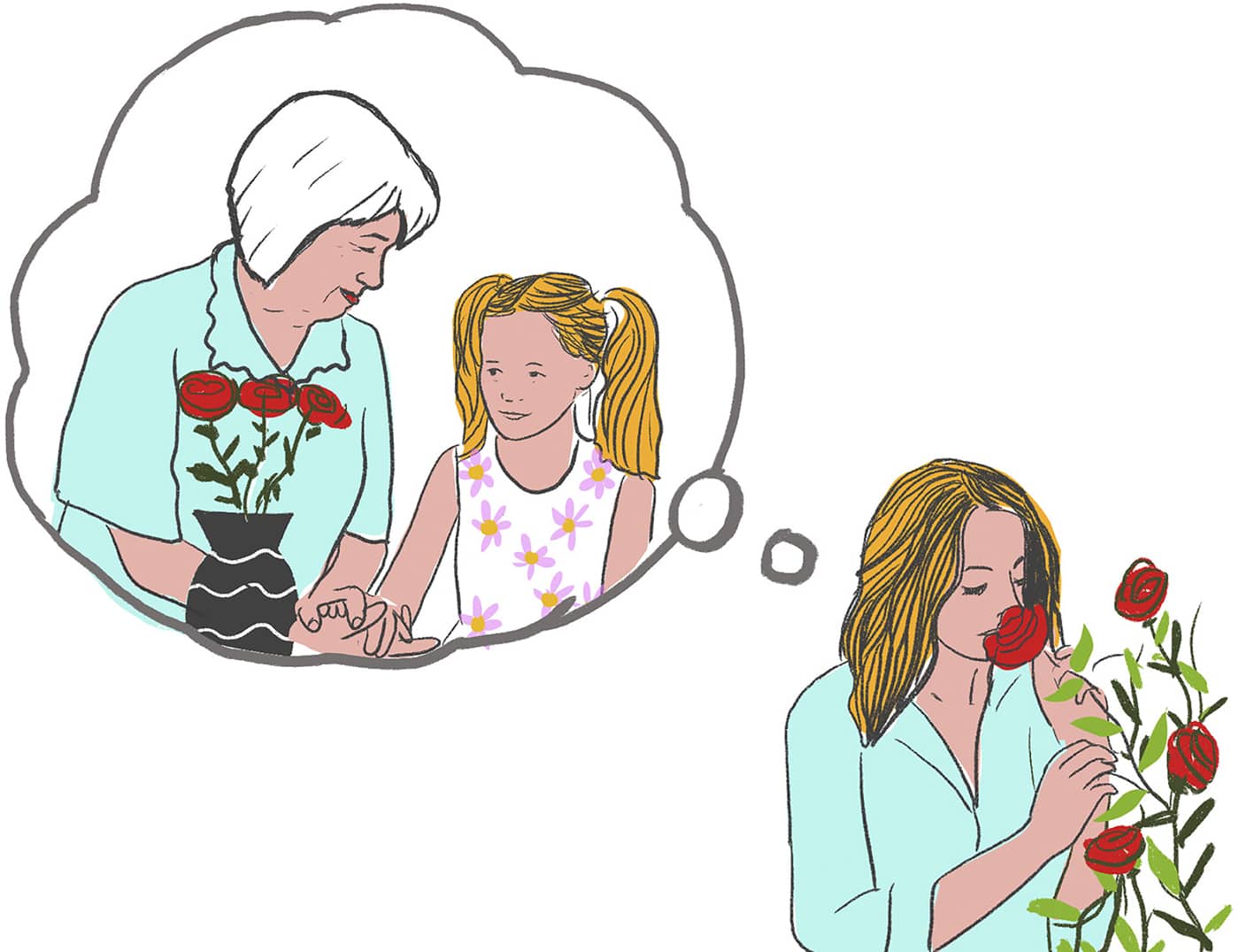Stop to Smell the Roses
Smell is the sense that can connect us most vividly with our past. The aroma of a favourite meal as it comes out of the oven, the scent of fresh laundry on your clothes, sand and sun cream mixed together on a sunny day … these can go right to our souls. We can see this clearly with children, who don’t hide their feelings and react strongly when they smell manure on the fields or a food that they don’t like: deep down, though we may be too polite to say so, we are passionate about what hits our noses. And while most of us like flowers but dislike rotting fish, how we respond to smells remains unique to each individual; the memories they trigger are unique to each of us. I remember the scent of my mother’s perfume, the Christmas ham cooking on the stove, the smell of bonfires on our clothes on a Sunday afternoon. These take me straight back to childhood and remind me of carefree days.
By introducing certain smells into the home, we can trigger our own unique memories; in turn, we are introducing these scents to visitors and others in the household. Our sense of smell is linked to our limbic system, nerves in the brain connected with strong emotions and recall: our reaction to smell is more heartfelt than to any other sense.

A TRIGGER FOR THE SENSES
Close your eyes for a moment and breathe in through your nose. What aromas can you pick out? Try to name each one as you become more aware of them. Are they pleasant or not? Do they trigger sensations in your body? The smell of bacon cooking can make my stomach rumble; the smell of freshly cut grass brings a spring to my step and an urge to head outdoors.
We begin the day with smell, perhaps the scent of the soap we wash with, maybe pouring out the first cup of coffee in the kitchen as we begin our familiar morning ritual. Coffee is a good example of inviting smell into the home each day: when we open a bag of fresh beans and inhale the aroma, this is an opportunity to practise mindful breathing. For one minute, we can breathe in for seven, hold for four and out for seven, and repeat a couple of times. This brings us into the present and makes us feel calmer. The whiff of coffee in the kitchen is connected with an act of self-care: we are taking time out of our day to look after ourselves and spend a few moments over a drink we enjoy.
SMALL BUT POWERFUL CHANGE
Fresh flowers evoke all sorts of emotions and make the house smell wonderful. Which rooms do you want to relax in? Would it be nice to wake up to the scent of flowers by your bedside, or would a few vases dotted around the home work better? The act of choosing the flowers can be a mindful experience; look at the shapes and textures of the leaves, the relaxing or stimulating colours of the petals, and the scent you might bring home – perhaps the powerful perfume of a lily, or the gentle aroma of a freesia. Fresh flowers are a treat, but you could have a bunch of dried herbs such as rosemary and thyme on hand to sniff as an everyday pick-me-up. Similarly, flowers are often used in essential oils; lavender to evoke calm and relaxation is a popular choice, and once of the safer oils to use near bare skin. A few drops on the pillow at night or in a bathtub can be a useful element of your bedtime routine.
Cooking, meanwhile, offers an opportunity to explore our sense of smell, and by doing so, create a powerful visceral connection to what we’re doing. For example, the process of making a casserole can be mindful if we can stop and notice the aroma, how it makes us feel, the sense of anticipation and comfort, and we consider what would make it taste even better, like adding more herbs or a splash of wine. It is worth taking our time in the act of cooking – after all, we are creating smells that may one day trigger memories for our families and friends.